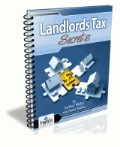Can I transfer my property of £300,000 to someone else for £60,000?
Question
If I am the landlord of a property with a market value of £300,000, and outstanding mortgage of £60,000, is there a tax-free way of transferring the property to someone else for £60,000? In effect they would just pick up the outstanding mortgage. Please assume I haven't lived in the property for some years and have lived in the US since 2001. This would help out a cousin who has just lost her husband and has 4 young children. Thank you
Arthur says Because you are not making an 'arms length disposal', you are deemed to be disposing of the property at its present market value, i.e. £300,000, even if in actuality you only receive £60,000 for it, or any other sum. Therefore your capital gain is the difference between £300,000 and the amount you paid for it. I get the impression from the question that you used to live in the property. If so you are eligible for principal private residence relief on its disposal. So you take the aforementioned gain, a) reduce it by indexation relief if you owned the property before April 1998, b) then reduce it by principal private residence relief, i.e. the period you actually occupied it plus the last three years of ownership, which are deemed occupied, c) if the property was let out during the period which you didn't actually occupy it or are deemed to occupy it, then you can reduce the gain attributable to this period by the 'letting exemption', i.e. the smaller of £40,000 or the amount you are claiming PPR relief in b), d) the remaining gain can then be reduced by non business asset taper relief, and e) after that you can knock off annual exemption, currently £9,200, if you haven't used it elsewhere. After all these calculations, it is quite possible that your final gain will be very small
Case Study
Got a burning tax question?
Why not submit a tax question to our tax advisors
Ask a Question
|


 UK Property Tax Q&A
UK Property Tax Q&A
